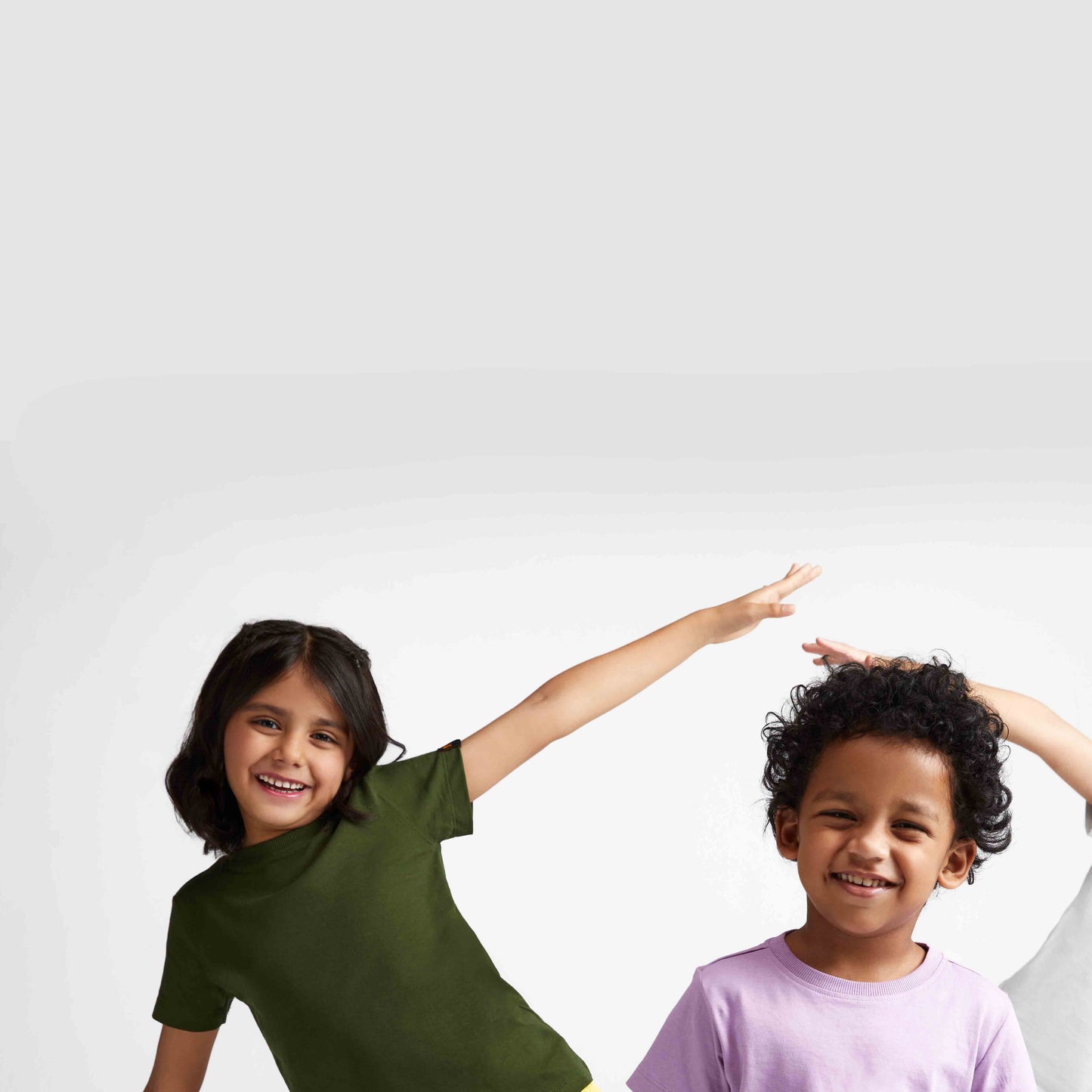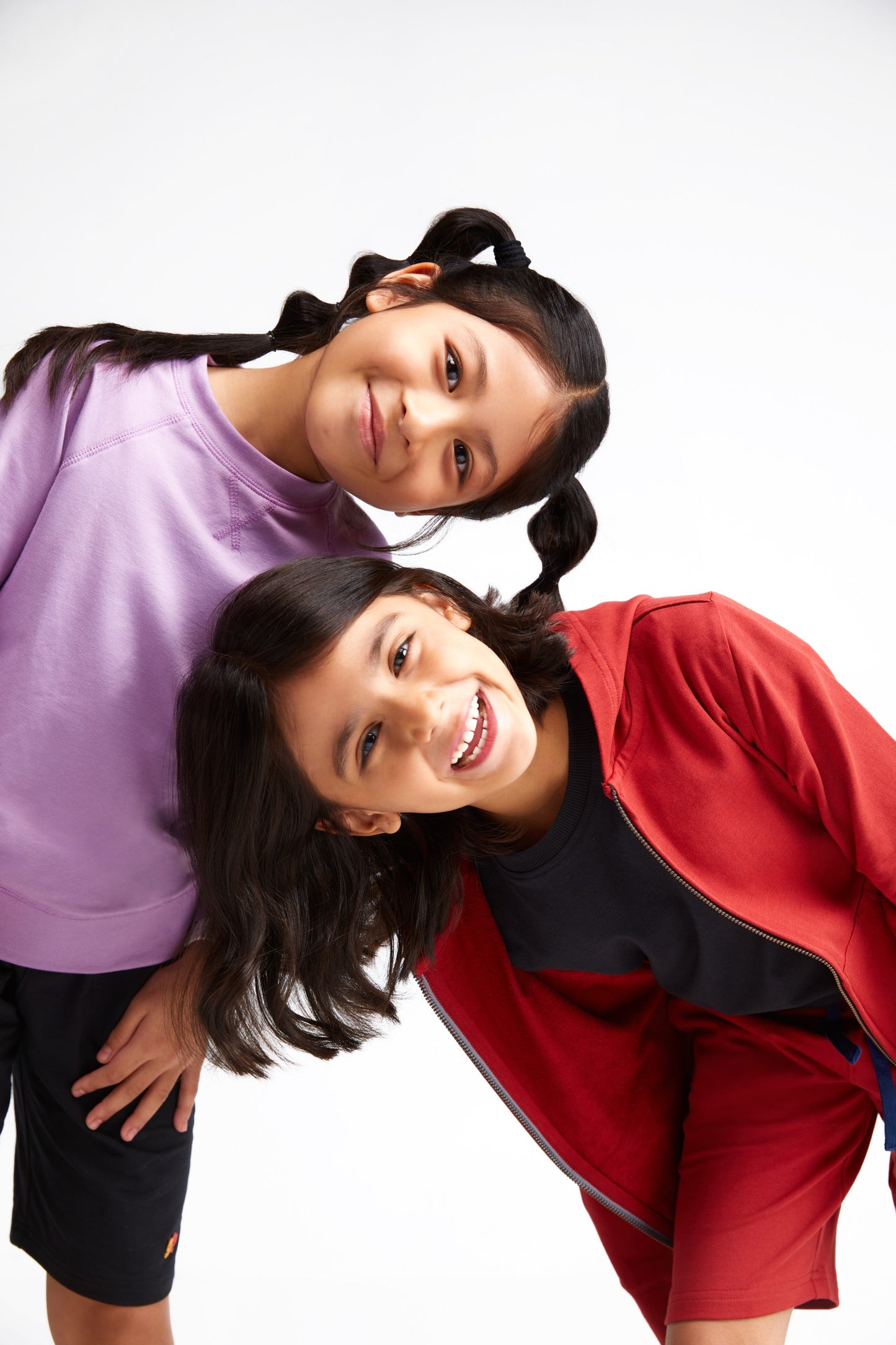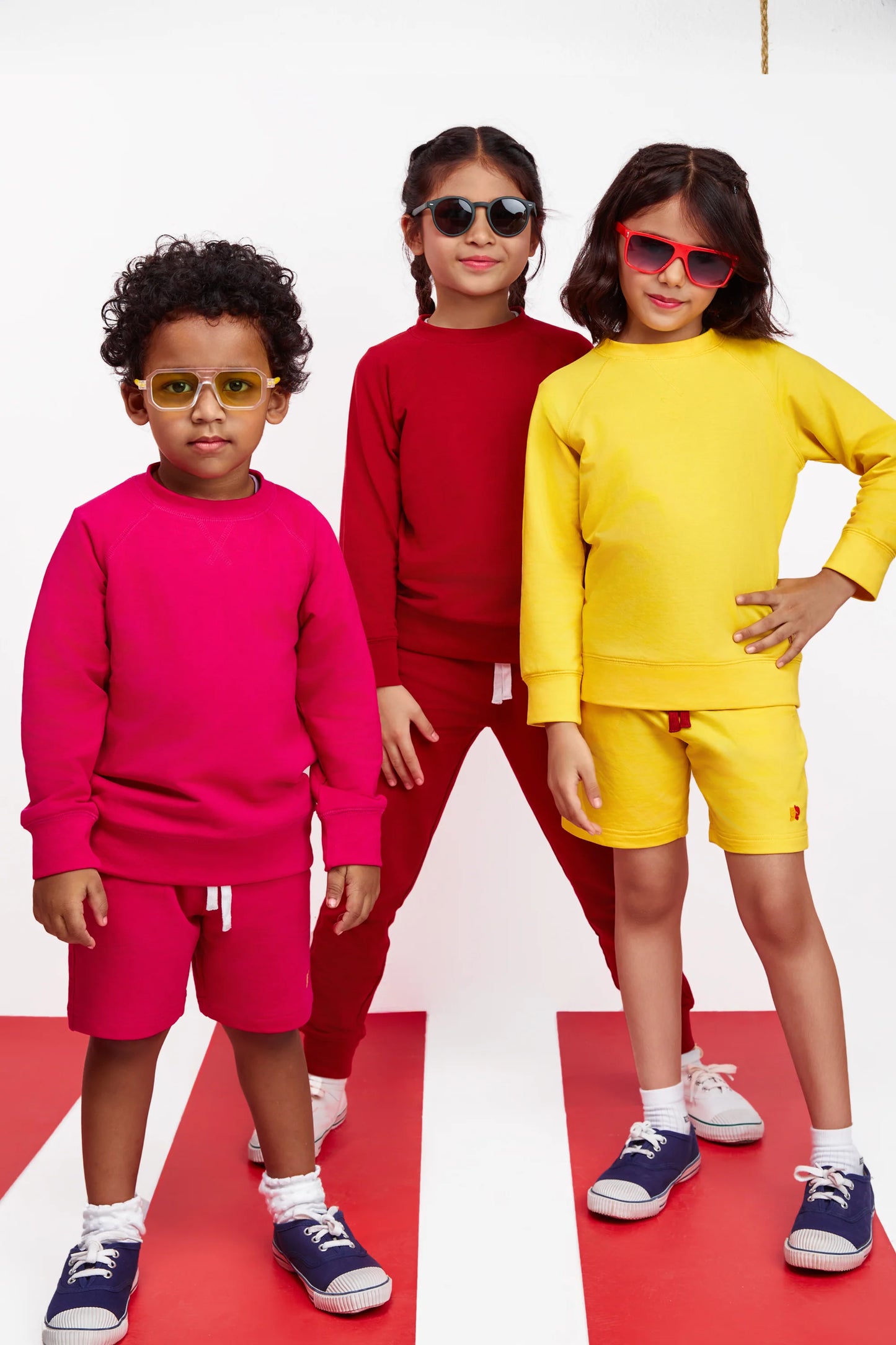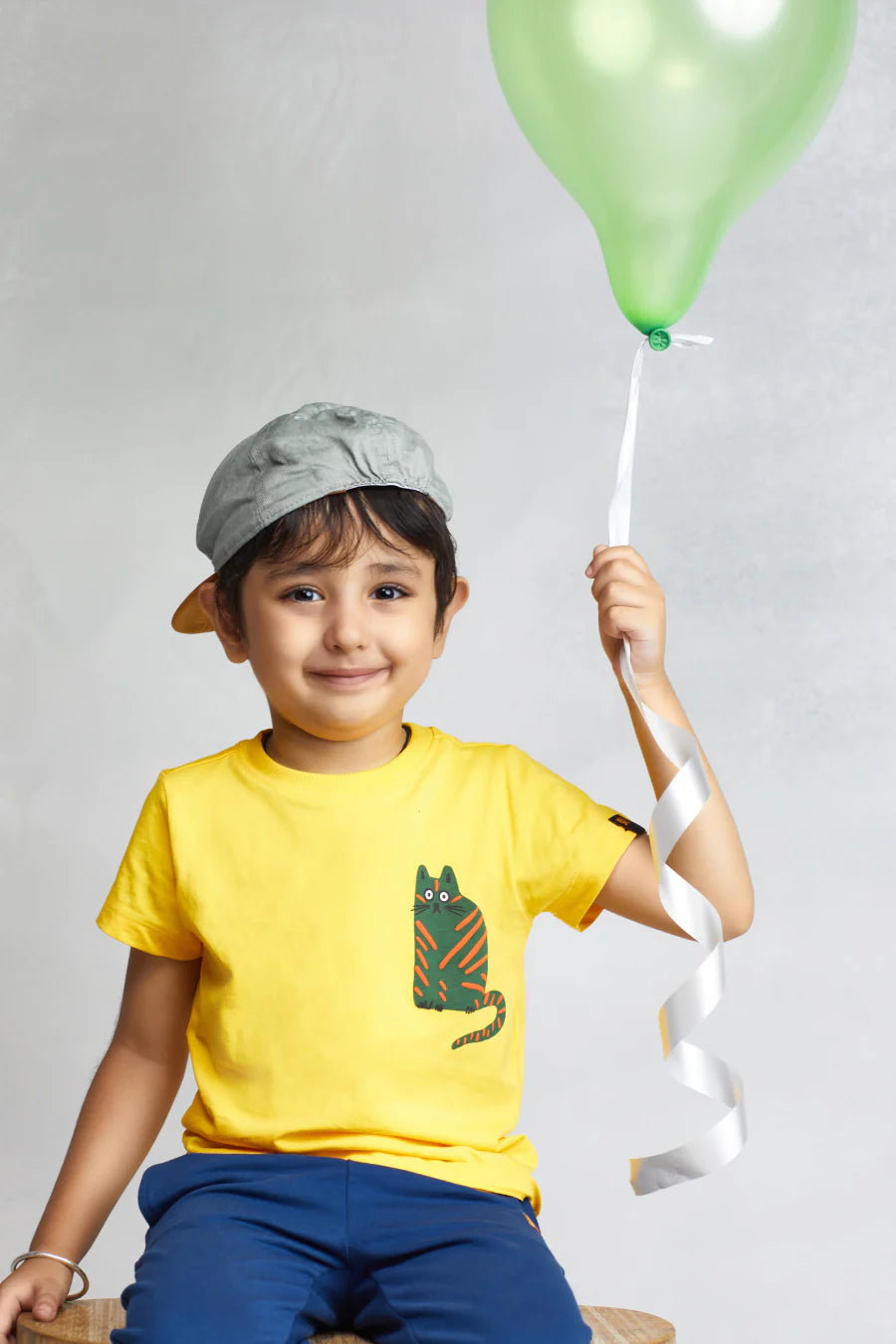
Teaching Kids About Sustainability: 5 Simple Habits to Start Early
Mum, why can't we just throw it away?"
If this innocent question caught you off guard while your child is holding a broken crayon or t-shirt they have barely worn, you have probably wondered what to reply…
You see, kids are always observing the world around them with fresh eyes and sometimes see things we might overlook. So, these moments are opportunities for parents to instil values of empathy and responsibility, shaping a better tomorrow for everyone. Instead of brushing their questions away, why not give their curiosity a purpose and thoughtful direction? And introduce them to sustainability?!
Sustainability isn't just facts and figures studied in textbooks. It is about nurturing a lifelong love for our planet through reasoning, encouraging them to be responsible, and building a lifestyle. Whether it is about recycling or turning off the lights when not needed, it's about showing them how their small actions can make a big difference.
And the best part? Learning about sustainability doesn't have to be boring. You can make the concept creative with a few simple habits to keep them interested and grounded.
Why Start Early?
Children are natural learners, absorbing what they see and hear every day. When you introduce sustainability to them at a young age, it becomes second nature as they grow. By starting early, you are not just teaching them to be eco-friendly; you are helping them develop lifelong habits of care and responsibility.
Early lessons in sustainability also foster:
- Empathy: They begin to understand the importance of caring for others, whether it's taking care of a pet or learning how to protect nature.
- Problem-Solving: They start thinking creatively about reusing items or finding new ways to cut down on waste, like turning old materials into something useful through DIY activities.
- Gratitude: They learn to appreciate what they have, feel content with less and realise that happiness doesn't come from owning more.
Starting now means they will carry these values into adulthood. And let's be honest, watching them proudly water their tiny garden or think of ways to reuse their stuff is a joy in itself.
How to Introduce Kids to Sustainability?
Introducing kids to sustainable practices can feel overwhelming at first. You might not know where to start and may find yourself answering many curious questions along the way. Here are a few mindful ways to make sustainability a part of your daily lives:
- Lead by Example: Your everyday choices as an adult around a child influence their habits and belief system. So, even if you think they are not paying attention, they constantly observe your actions. Kids are expert imitators. For instance, the household products you buy, the kind of products you shop for, and the plastic and electronic products you use set an example for the kids watching you. So, one of the most powerful ways to teach your kids about sustainability is simply by living it yourself.
Handy Tips:
- While sorting glass, paper or plastic for recycling, make sure to show the process to your children. You can also involve them and ask for their help with segregation.
- Prepare a "Reuse Box" that lets them think about whether a specific thing can be reused creatively before throwing it away.
- Make conscious shopping decisions instead of impulse purchases.
- Tell bedtime stories about how paper is made or ocean pollution to enable eco-awareness in a fun, magical way.
Household Chores: Household chores do not have to be complicated or boring. You can have your kids do the basic tasks in a fun and meaningful way.
Handy Tips:
- Create wet and dry waste bins with labels and pictures on each. You can play games like "What Goes Where" by mixing up the waste and asking them to toss it in the right bin. (Under your supervision, of course).
- Start involving them while doing laundry. Explain the right amount of detergent and water required to avoid wastage.
- Switch to organic and eco-friendly cleaning products.
- Avoid the use of single-use plastics.
- Use cloth or paper bags for grocery shopping.
Minimal Consumption: Teaching kids about minimalism and mindful consumption is a great way to instil values of sustainability. Instead of mindlessly purchasing toys or clothes every time you go out, encourage your children to think about why they need something before they buy it.
Handy Tips:
- Check labels before shopping for clothes. Invest in premium quality, organic, 100% cotton and long-lasting apparel.
- Shop minimally by adding functional and easy-to-wear clothes to the closet. For instance, go for gender-neutral basic tees or shorts that can be easily mixed and matched. You can also buy organic all-weather sweatshirts or joggers that can be worn year-round and not just for a specific season.
- Opt for toys and games made from sustainable materials like wood or natural fibres.
- Before buying clothes or toys, always ask your children, "Do we need this?". This improves their decision-making abilities, and they choose things that are sustainable.
Grow a Mini Garden Together: A mini garden is not only fun for kids, but it's also a fantastic way to teach them about sustainability and the environment. Encourage your kid to participate in every step: choosing the plants, planting the seeds, watering them, and watching them grow. Gardening teaches patience and the importance of preserving nature.
Handy Tips:
- Start by planting herbs or vegetables in your backyard or balcony. If the space is compact, try container or vertical gardening. You can also repurpose items like old egg cartons for seedling starters.
- Teach them to make vegetable waste as compost for gardening or vegetable water for watering trees.
Conserving Water and Electricity: Kids may love splashing in the bath or leaving the lights on, but teaching them to conserve water and electricity is fostering an essential sustainable habit.
Handy Tips:
- Guide them to turn off the tap while brushing their teeth and take shorter showers to save water.
- You can also set a timer for bath time so kids can finish quickly and use less water.
- Show them how turning off lights when they leave a room helps save energy.
- Limit their electronic device usage by explaining carbon emissions and their environmental impact.
Frequently Asked Questions by Parents on Sustainability
You can begin as early as toddler age. You can introduce simple concepts like switching off lights, recycling or conserving water and delve into complex habits as they age.
You can make sustainability fun and interesting by turning the tasks into games and activities. You can also tell them stories to draw their attention.
Simplify concepts by using relatable examples, like comparing pollution to littering or climate change to being too hot under many blankets. Use visual aids like books, pictures, or short videos to make the information fun and easy to understand.
Raising Eco-Conscious Kids, One Step at a Time
Teaching kids about a sustainable lifestyle is an ongoing activity that requires practical lessons, setting examples and conscious discussions. With small, everyday actions, you can set the foundation for a brighter, greener future for them and the world around them. By adopting and carrying these principles, they will create a sustainable future for future generations to follow.Kiggle is an organic kids clothing store in India. We offer GOTS certified organic cotton clothes for children that is safe, comfortable and breathable. One of the top few brands for kids wear in India that offers premium basics at an affordable price point while being sustainable.
Competitors : Ed-A-Mamma India / Hopscotch India | First Cry India | Mackly India | Gini & Jony | Lilliput India | Nino Bambino | Little Kangaroos | MotherCare | Cucumber
Kiggle has been a trusted name for years, providing a range of kids wear clothes designed with your style and comfort in mind.



